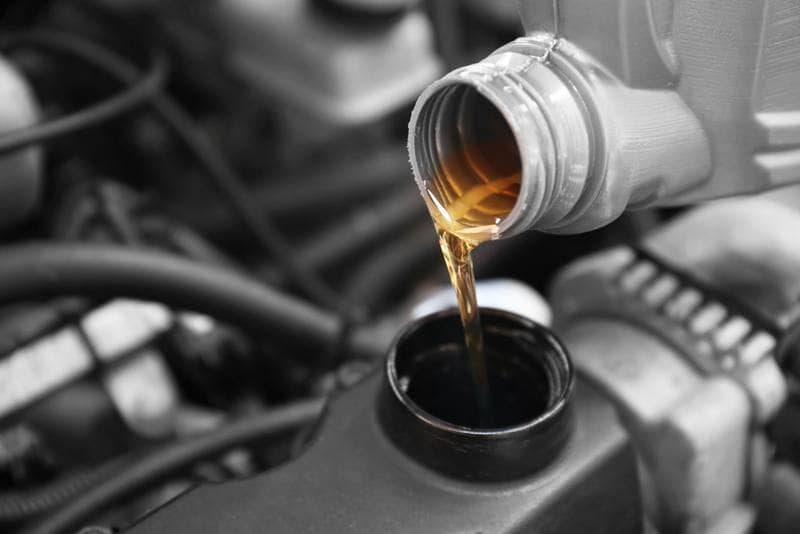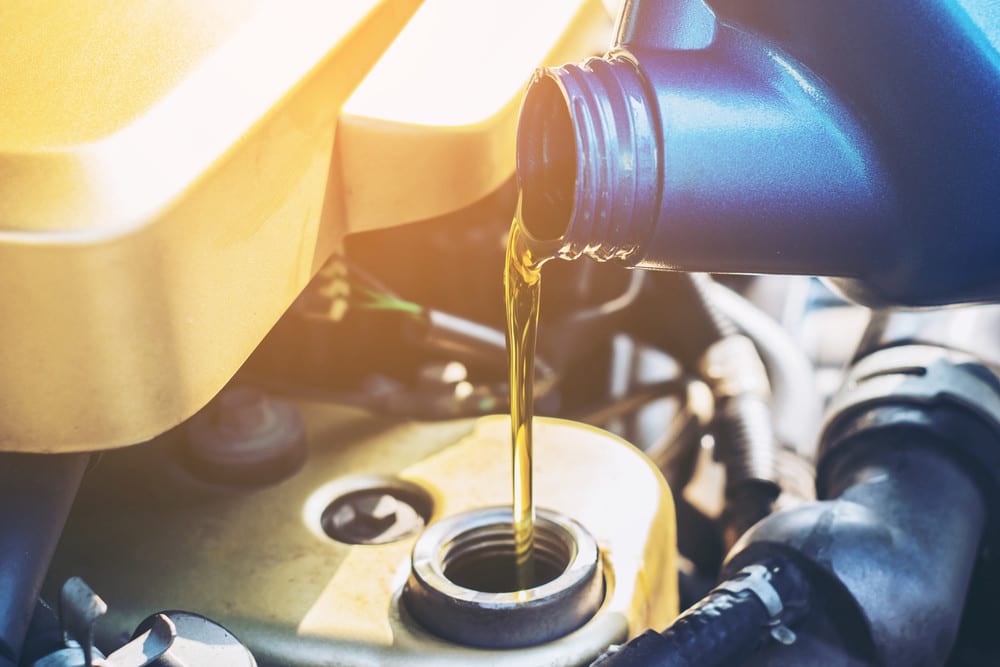Not getting an oil change can cause overheating in a vehicle. Inadequate lubrication from old or dirty oil can lead to increased friction and heat buildup in the engine, potentially resulting in overheating.
Neglecting regular oil changes can also lead to other issues such as engine damage and decreased performance. Maintaining a consistent oil change schedule is crucial for keeping the engine properly lubricated and preventing overheating.
The Importance Of Regular Oil Changes
The importance of regular oil changes cannot be overstated. Neglecting this simple maintenance task can result in overheating and other serious issues with your car’s performance. Regular oil changes are essential for optimal car performance as they help to keep the engine running smoothly and efficiently. When the oil in your car becomes old and dirty, it loses its ability to lubricate the engine effectively, leading to increased friction and heat. This can cause the engine to overheat, which can result in significant damage and costly repairs. By scheduling regular oil changes, you ensure that your engine is always running with clean, fresh oil that can effectively lubricate the moving parts and absorb heat. This helps to prevent overheating and extends the life of your engine. Don’t underestimate the impact of neglecting oil change maintenance. By making this simple task a priority, you can avoid the headaches and expenses associated with overheating and keep your car running smoothly for years to come.

Credit: www.jimellishyundai.com
Effects Of Not Getting An Oil Change
Not getting regular oil changes can have serious effects on your vehicle’s performance, including potentially causing overheating. One of the main reasons for this is the accumulation of dirt and debris in the engine. Over time, oil becomes contaminated with particles that can clog the engine and hinder its ability to cool down. This buildup of impurities can lead to increased friction and wear on engine components, further contributing to the potential for overheating.
Lack of proper lubrication is another consequence of not getting an oil change. Oil serves as a protective barrier between engine parts, reducing friction and heat buildup. When the oil becomes old and dirty, it loses its effectiveness, leaving the engine vulnerable to overheating.
Regular oil changes are crucial for maintaining the health and performance of your engine. By keeping the oil clean and fresh, you can prevent the accumulation of dirt and debris, reduce friction, and ensure proper lubrication. This, in turn, will help prevent overheating and potentially costly repairs.
Signs Of Overheating And Engine Damage
Not getting an oil change as recommended can lead to overheating and potential engine damage. One of the signs of overheating is monitoring the temperature gauge and warning lights. A rising temperature gauge or a warning light illuminating on the dashboard are indicators that the engine may be overheating. Unusual noises coming from the engine or performance issues, such as loss of power or stalling, can also be symptoms of overheating. Ignoring these signs and continuing to drive with an overheating engine poses the risk of permanent engine damage. Overheating can cause critical components, such as the head gasket or piston rings, to fail, leading to costly repairs or even engine replacement. Therefore, it is crucial to regularly perform oil changes and properly maintain the cooling system to prevent overheating and potential engine damage.
How Oil Changes Prevent Overheating
Can Not Getting an Oil Change Cause Overheating
Oil changes are essential for preventing engine overheating. Clean and efficient lubrication is necessary for the smooth operation of engine parts. Over time, oil can become contaminated with debris, dirt, and sludge which can hinder its ability to properly lubricate the engine. By removing old and degraded oil and replacing it with fresh oil, the engine can function optimally.
Fresh oil provides better lubrication, preventing friction between moving parts. This helps to reduce heat buildup, ensuring proper engine cooling. Additionally, fresh oil promotes temperature regulation, preventing the engine from overheating. By having regular oil changes, you can ensure that your engine remains cool and efficient, minimizing the risk of overheating-related issues.
| Benefits of Oil Changes for Preventing Overheating |
|---|
| Clean and efficient lubrication for engine parts |
| Removing old, degraded oil and replacing with fresh oil |
| Promoting proper engine cooling and temperature regulation |
Recommended Oil Change Intervals
Regular oil changes are essential to ensure a vehicle’s engine operates smoothly and efficiently. Following the recommended oil change intervals specified by the manufacturer is crucial in maintaining the overall health of the engine. These intervals typically vary depending on the make, model, and year of the vehicle. It is vital to follow these guidelines as they are designed to maximize the longevity of the engine. Various factors can affect the frequency of oil changes, including driving conditions, mileage, and the type of oil used. Frequent stop-and-go city driving, towing heavy loads, or operating in extreme weather conditions can all contribute to faster oil degradation and necessitate more frequent changes. Consistent maintenance, as per the manufacturer’s recommendations, ensures that the engine remains adequately lubricated, reducing the risk of overheating and other mechanical issues in the long run.
Diy Vs. Professional Oil Changes
Getting regular oil changes from a professional can help prevent overheating issues in your vehicle. DIY oil changes may lead to improper lubrication, causing the engine to overheat. Ensure the longevity of your car by relying on experts for this essential maintenance task.
Pros and cons of changing oil at home
Changing your car’s oil is a crucial maintenance task that helps prevent engine damage and overheating. While some car owners prefer to tackle this task themselves, there are important considerations to keep in mind. DIY oil changes have their advantages, such as cost savings and convenience, allowing you to work at your own pace. However, it’s vital to remember that professional oil changes offer benefits that DIY methods may not provide.
| DIY Oil Changes | Professional Oil Changes |
|---|---|
|
|
With professional oil changes, trained technicians ensure that the right oil and filters are used for your specific vehicle. They also conduct a thorough inspection to identify any potential issues that may contribute to overheating. Entrusting this task to professionals provides peace of mind and can prevent costly engine damage down the road. Additionally, they follow manufacturer recommendations and warranty requirements, which is essential for optimal vehicle performance.
Conclusion
To sum up, neglecting oil changes can indeed lead to overheating in your vehicle. It may seem like a simple maintenance task, but regular oil changes are essential for proper engine lubrication and cooling. By allowing old oil to build up, friction and heat increase, which can result in engine overheating.
To avoid costly repairs and breakdowns, it’s vital to prioritize routine oil changes and follow your vehicle manufacturer’s recommendations. Stay proactive and keep your engine running smoothly by giving it the care it deserves.

